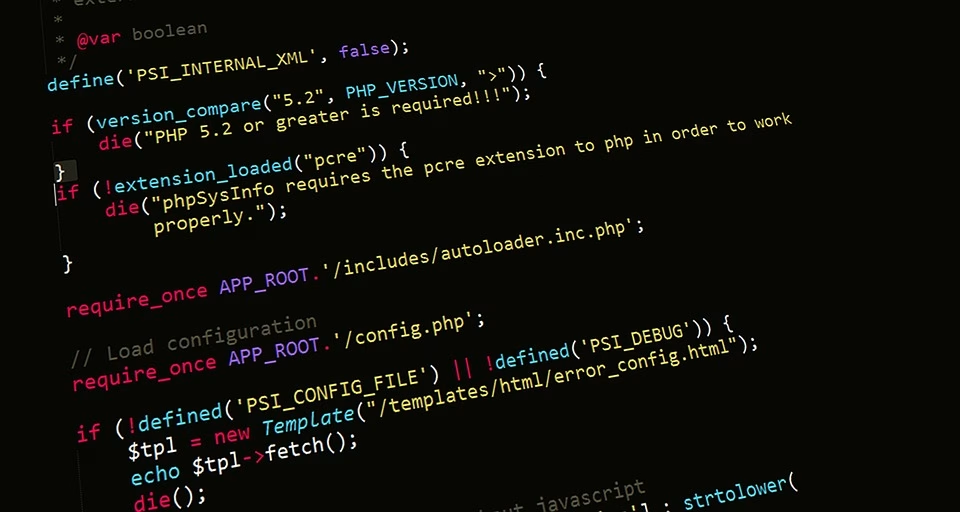Future-Ready: How Software Will Shape Industries in the Next Decade

Introduction
In the fast-evolving landscape of technology, few voices resonate as powerfully as that of Laura Choi, the CEO and founder of CodeCrafters. As a trailblazer in the Software as a Service (SaaS) industry, Laura has not only led her company to remarkable success but has also been a thought leader shaping the future of software development. With her expertise, Laura’s opinions are vital for understanding the innovations and challenges that define the software industry today.
Background
Founded in 2018, CodeCrafters is a platform designed to simplify the software development process through user-friendly tools that cater to developers of all skill levels. Under Laura’s leadership, the company has achieved a series of milestones, including securing $50 million in Series B funding in early 2023 and expanding its user base by 400% in just two years. CodeCrafters has established itself as a vital player in the burgeoning SaaS landscape, becoming synonymous with ease of use and comprehensive support for developers. Laura’s vision blends technology with user experience, making her insights imperative for anyone looking to navigate the complex waters of software innovation.
Interview Highlights / Key Opinions
Embracing the Cloud Revolution
"Cloud technology has fundamentally changed the way we build and deploy software. It’s not just about efficiency; it’s enabling creativity at levels we’ve never seen before," Laura asserts. This perspective aligns with a key software industry prediction for 2025: that cloud-native architectures will dominate, making agile development essential.
The Rise of Low-Code Platforms
Laura points out, "Low-code platforms are a game changer. They empower not just developers but also business users to build solutions. This democratization of software development is what’s going to drive innovation in the coming years." The popularity of low-code solutions reflects a significant shift in how businesses approach software development, making tech more accessible.
Prioritizing Data Security
"We cannot overlook the importance of data privacy and security. As we adopt more advanced technologies, we must also ensure that our users’ data is protected," she emphasized. This statement highlights a critical challenge that the software industry continues to face, particularly as user trust becomes paramount in a data-driven world.
The Need for Collaboration
"Collaboration among teams has become essential for success in software development," Laura explains. "It’s no longer about working in silos; the future of software hinges on integrated workflows where developers, designers, and project managers work together seamlessly." This opinion reflects a growing trend in the industry to foster more collaborative environments.
Industry Context
Laura’s insights come against a backdrop of significant evolution in the software landscape. The push towards cloud-native development, combined with the rise of low-code platforms, reflects the industry’s shift towards greater agility and responsiveness. According to recent studies, over 70% of enterprises are now investing in low-code technologies, aiming to accelerate their digital transformations.
Moreover, data privacy concerns are at an all-time high due to increasingly stringent regulations like GDPR and evolving consumer expectations. As the software industry grapples with these contextual challenges, Laura’s emphasis on security resonates deeply, reinforcing the idea that trust is the new currency in software development.
Analysis
The relevancy and accuracy of Laura’s opinions are bolstered by industry data and the trajectories of emerging technologies. With predictions for 2025 outlining a world dominated by cloud-native scalable solutions, her views on the importance of adaptability and innovative thinking in SaaS are not just timely but critical. The urgency of collaboration in development processes is further illustrated by studies revealing that cross-functional teams consistently outperform isolated teams.
Laura’s firm stance on data security echoes concerns raised in cybersecurity forums and adds to the broader dialogue about responsible tech development. As data breaches become more frequent, her words serve as a clarion call for a new paradigm of security-first software development.
Key Takeaways
-
Adoption of Cloud Technology: Businesses must embrace cloud-based solutions for greater efficiency and scalability.
-
Low-Code Platforms: These tools can foster creativity across various user bases, encouraging non-technical stakeholders to contribute to software development.
-
Data Security: Prioritize a framework of robust data protection to gain users’ trust.
-
Collaborative Workflows: Foster a collaborative environment across teams for enhanced productivity and innovation.
- Continuous Learning: Staying updated on software trends and user needs is fundamental for sustainable growth in this competitive landscape.
Conclusion
Laura Choi’s insights are a must-hear as we venture deeper into 2025. As the SaaS industry continues to evolve, her predictions and opinions will undoubtedly influence the next generation of software development. We are on the cusp of unprecedented innovation, and staying attuned to these expert voices will be critical for businesses looking to thrive in a competitive environment.
As we look ahead, one thing is clear: the future of software will be marked by collaboration, security, and an unwavering commitment to user empowerment.
Frequently Asked Questions
Q: Who is Laura Choi?
A: Laura Choi is the CEO and founder of CodeCrafters, a leading SaaS company known for its user-friendly software development tools.
Q: What is CodeCrafters?
A: CodeCrafters is a cloud-based platform that simplifies software development, focusing on accessibility for both developers and non-developers.
Q: What are the key software trends for 2025?
A: Key trends include the dominance of cloud-native applications, the rise of low-code platforms, and an increased focus on data privacy and collaborative development processes.
Q: Why is data security important in software development?
A: As data breaches become more common, ensuring data privacy is essential for maintaining user trust and adhering to legal regulations.
Stay tuned for more software expert interviews as we continue to explore the evolving landscape of technology!
🚀 Try Ancoia for FREE today and experience the power of business automation!
🔗 Sign up now and get a 7-day free trial



